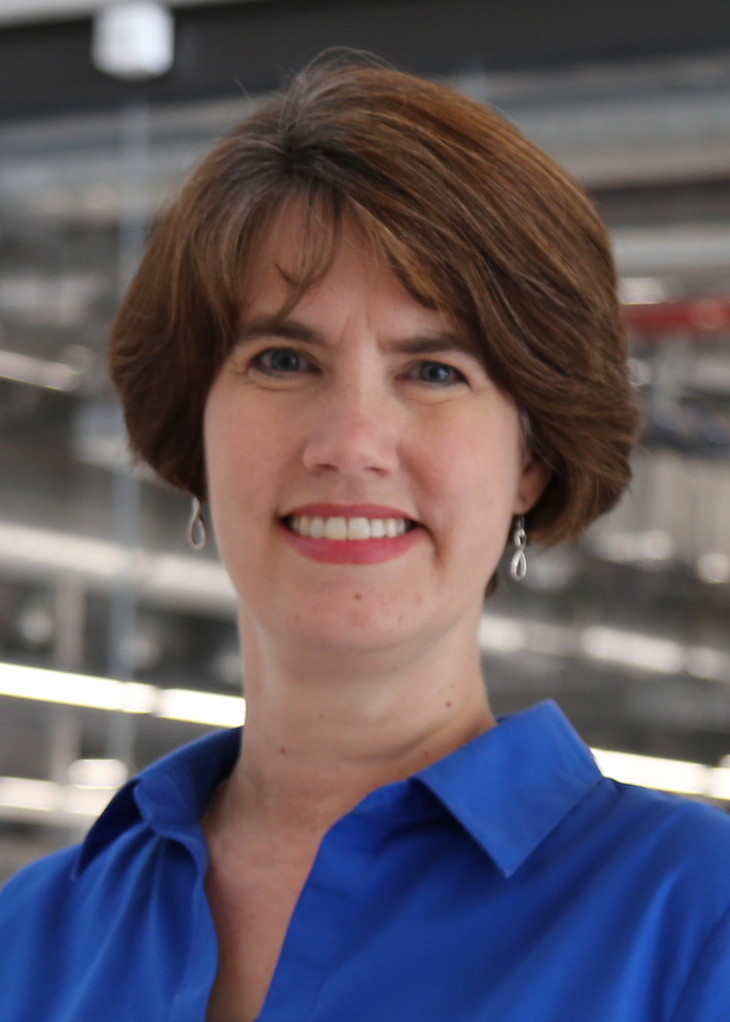After 10 years working for Allen and administrating the AQRP research program, Stanzione began looking for a new position at UT. In 2019, she found her place at the Oden Institute.
As Associate Director, Stanzione manages the operations of the Institute. “I’m responsible for managing the Accounting and Finance team, as well as the Communications team, IT team, and Programs group. Programs include the CSEM graduate program, J. T. Oden Visiting Fellows and O’Donnell Postdoctoral Fellows.” She is also the architect of the Institute annual report. This massive project requires collecting and analyzing data on Institute faculty, staff, and student activities throughout the year and compiling it into a single resource.
Another on-going project in Stanzione’s portfolio is developing a strong communications strategy for the Institute. The development of the new Oden Institute website, which is now up for everyone to see, is a key priority in that strategy. “The team was very excited when we launched the new website. Still, it is an ongoing project that we will be continuously tweaking and improving as we go.”
This year, Stanzione has also taken on the role of Building Manager of the Peter O’Donnell Jr., Building (POB).
Managing During a Pandemic
With the outbreak of the COVID-19 pandemic and the closing of the University in spring 2020, Stanzione managed the Institute’s response, including ensuring compliance with university rules and procedures and communicating the frequently changing policies to staff, faculty, and students.
“It was a lot of moving parts. We had to transition all staff to working from home. Fatima Bridgewater, Stew Stafford and I worked together to make sure everyone had what they needed to work from home.”
“I was still managing people and information, but the focus really changed to pandemic related university compliance and rules and enforcing new university policies, such as tracking who went in and out of the building, and just asking everyone, ‘are you ok?’”
Stanzione, along with Director Karen Willcox, Assistant Director Fatima Bridgewater, and Deputy Director Bob Moser, worked together to protect the safety of faculty, staff and students and did their best to ensure that the Institute carried on as normally as possible.
“I really enjoy working with Karen, Fatima, and Bob. I think we make a great team. We come at things from different directions, but we are all willing to listen and consider each other’s ideas in order to pick the best path for the Institute.”
Stanzione added, “Working with Karen is especially great because, while she is a faculty member, she also understands the administrative challenges of running the Institute.”
Geologically Inclined
When not working, Stanzione enjoys hiking and being in nature. “I like being outdoors, especially in the woods. I’ve also always been a fan of the mountains.” Some of her favorite hiking trails around Austin are Turkey Creek along with the Violet Crown and Sculpture Falls trails in the Barton Creek area.
“I also love Jackson Hole, Wyoming. One of the trails I hiked there was a portion of the Teton Crest Trail. It was the first time I had done anything of that scale at high altitude—around 20 miles, three days and two nights. We camped at 9000 ft of elevation. That was an amazing trip.”
Stanzione is fascinated by rocks and geology. “I took a geology course in college, and it just clicked with me. Plate tectonic theory was relatively new in the 60s, so when I was in college there was still research underway to better understand the processes. Actually, there still is. Research breakthroughs are being made all the time, even at the Oden Institute. For example, Omar Ghattas’ recent work on mantle convection, and another one of our faculty, Thorsten Becker, just did some really neat research on subduction zones.”
The large processes – such as how the Earth’s tectonic plates move and align - really intrigue Stanzione. “My geology professor in college was one of the people who proved Africa and South America were once attached to each other. He found rock bands that started in South America and continued in Africa.” Activities on the earth’s surface that are somewhat smaller scale also pique her interest. “Patrick Heimbach’s work on ice flows and glaciation is really interesting. And things like glaciers and volcanos, and glaciers on volcanoes,” Stanzione added. “So fascinating.”
Stanzione is also involved with two local non-profits, Foster Angels, an organization dedicated to helping children in the foster system, and BookSpring, a children’s literacy program. She frequently volunteers sorting books that have been donated to BookSpring. “A friend from my book club told my best friend about the organization. She works there full-time now as their program director. After learning more about the organization from her, Dan and I decided to become volunteers. We will frequently take about a dozen boxes of books home at a time and sort them. We’ve also helped at book give-away events. That’s where the real excitement happens.”

